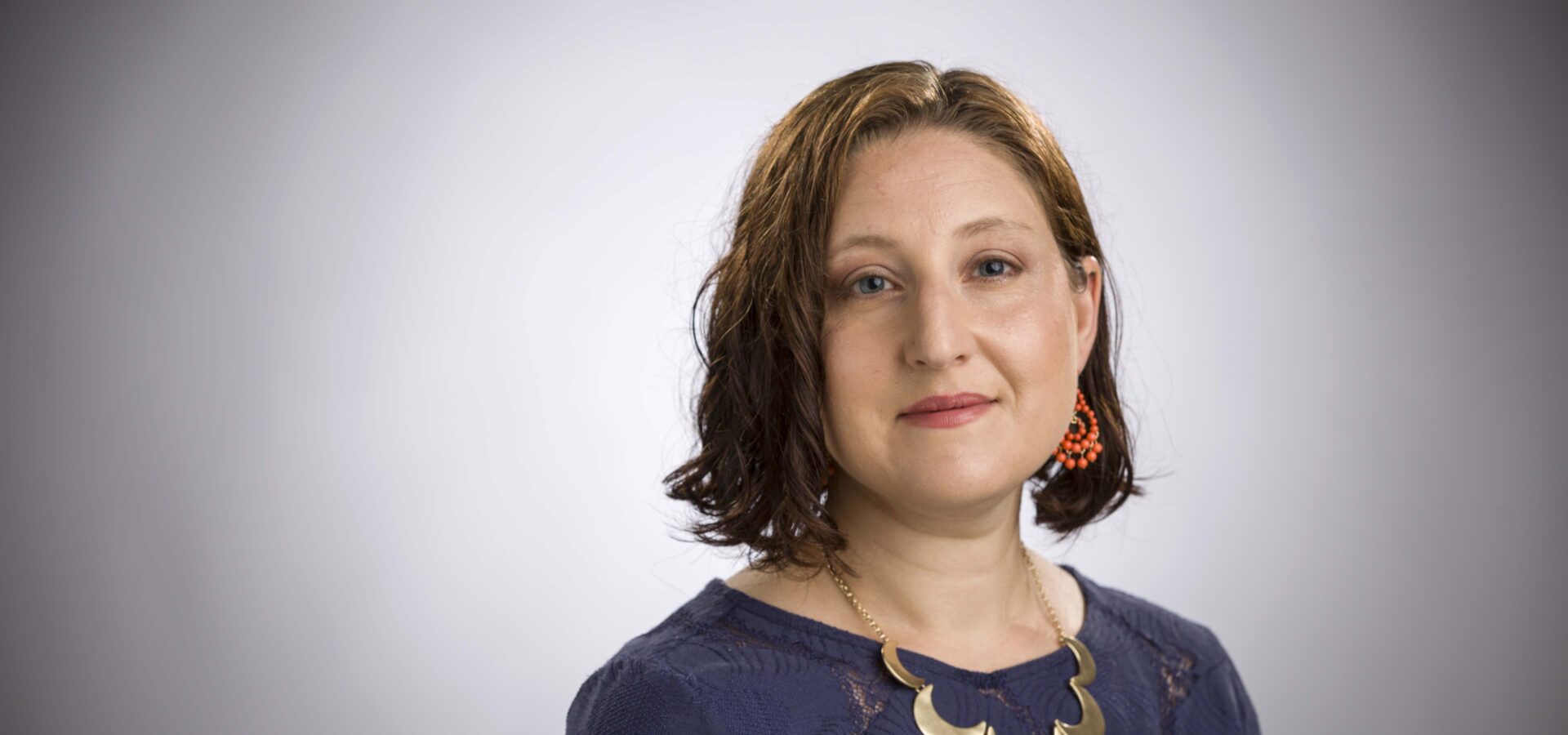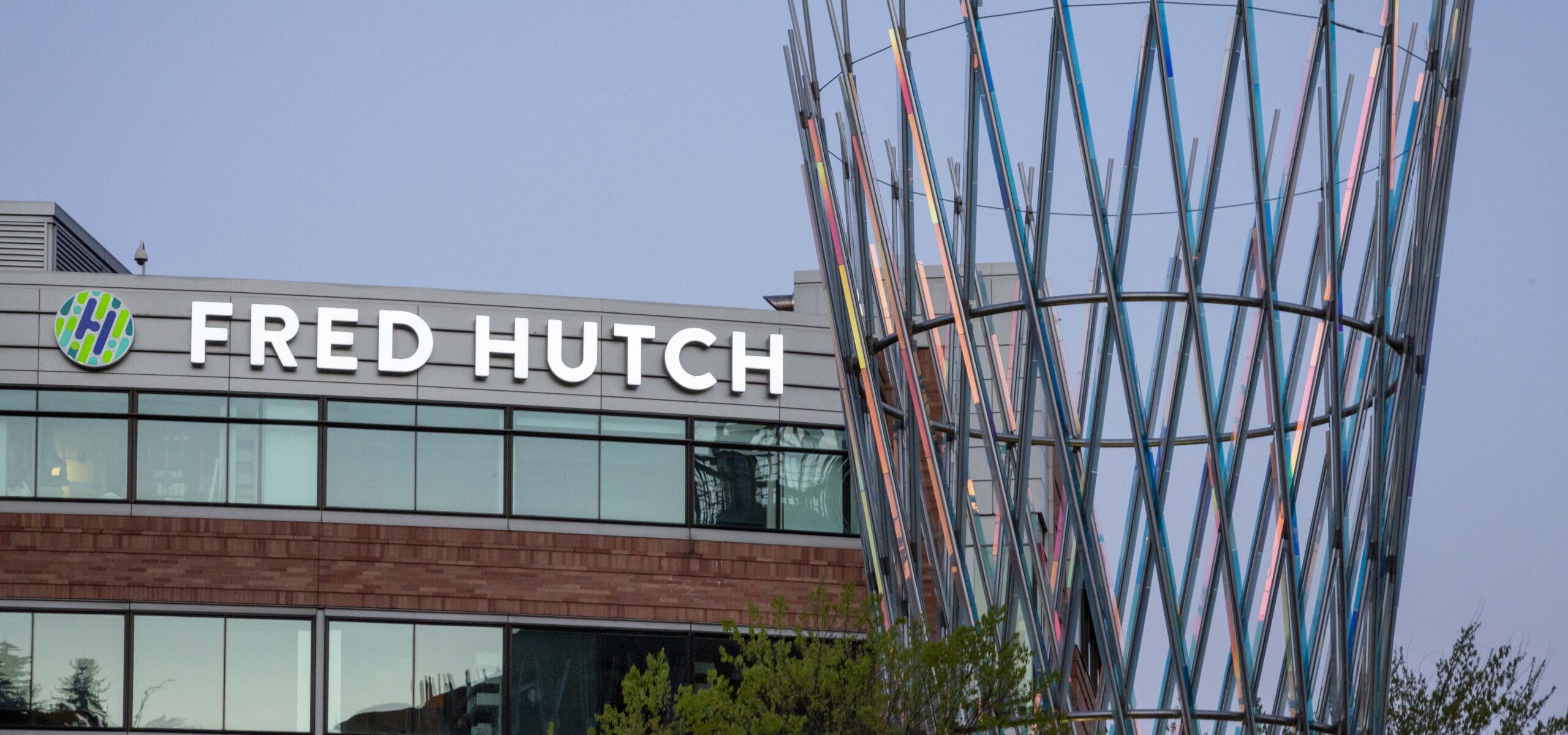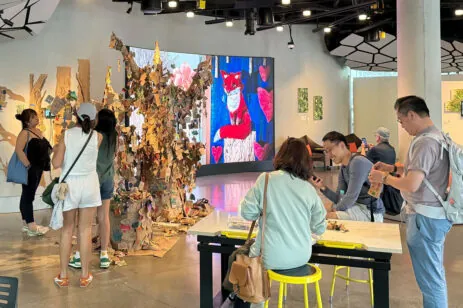Located on Fred Hutch’s South Lake Union campus in Seattle, the COVID-19 Clinical Research Center conducts innovative studies for SARS-CoV-2-positive participants, the virus that causes COVID-19. We chatted with the CCRC’s medical director Dr. Rachel Bender Ignacio about Fred Hutch’s contribution to research of the disease, learnings since its opening, and what the public needs to know about COVID-19 research going forward.
Three questions with Dr. Rachel Bender Ignacio, Medical Director of the COVID-19 Clinical Research Center at Fred Hutch.
Discover South Lake Union: What makes Fred Hutch uniquely qualified to contribute to COVID-19 research?
Dr. Rachel Bender Ignacio: Fred Hutch is a world-class research institution, most well known for being a cancer research center, but also one of the leading centers for study of HIV, herpesviruses, and respiratory viruses, as well as being a global leader in vaccine research.
We have a wide range of scientists, from virologists, immunologists, clinical trialists, genetic epidemiologists and computational scientists, who have collaborated with healthcare providers, the biotech and pharmaceutical industry and fellow research institutes to activate projects related to the COVID-19 pandemic—including vaccination and therapeutics development and long-term immunology observation.
The COVID-19 Clinical Research Center (CCRC) at Fred Hutch is a great example of taking decades of scientific expertise and activating long-standing financial supporters of the institution to create a phenomenal stand-alone facility that is uniquely resourced to safely conduct therapeutic and observational studies for those who are COVID-positive. Fred Hutch has been able to move quickly during the early stages of an ever-changing pandemic, staying flexible and innovative in establishing the CCRC and putting together research teams and projects that would help in generating new scientific discoveries and translating them into effective medical practices, therapies, and public health approaches to end the pandemic.
DSLU: The CCRC opened in October 2020. What have been the biggest learnings since then?
Dr. Rachel Bender Ignacio: We have learned to be adaptable and nimble, but also draw from the deep connections in science and community engagement that the Hutch already had through existing projects and its Office of Community Outreach and Engagement. By utilizing these established community connections, the CCRC was able to work quickly in creating collaborations with testing sites, state and county public health centers, community organizations and institution leaders.
We were also able to work quickly in developing practices that would address and overcome both common barriers to research participation and the unique COVID-related challenges, such as removing the need for paper and ink and higher-contact protocols, establishing safe transportation and wayfinding that would prevent transmission, sourcing of increased PPE during a time of high demand for resources, and equitable share and cooperation with other research institutions that were working with the same pool of participants.
We also had to swiftly develop a recruitment strategy that could efficiently utilize our partnerships with testing sites and providers effectively to meet high enrollment expectations in a short amount of time and move our high-need research forward quickly to help with the national effort to expand treatment use and curb severity and morbidity rates during peak infection surges. We built a robust recruitment team quickly by connecting with local universities that had cohorts of medical and public health students that had expressed a desire to contribute to COVID-19. We could not have exceeded enrollment goals without their efforts and dedication.
Discover South Lake Union: What is one thing you wished the public knew about COVID-19 clinical research that it probably doesn’t?
Dr. Rachel Bender Ignacio: Even though we have successful development and use of COVID-19 vaccines and there have been FDA Emergency Use Authorizations for a few monoclonal antibodies to treat COVID-19, the research for therapeutics is not done yet. We need treatments that are accessible and appropriate for use in broad populations. If treatments are a resource-intense IV infusion that needs to be administered within a few days of diagnosis by a highly-skilled nurse in an infection-control environment, we cannot effectively reach everyone who will need treatment for COVID-19 in the U.S., let alone globally.
The CCRC has participated in some of the studies to bring about the first infusion treatments, but we are also focusing on the research and development of pills that could be more accessible in varied communities to be prescribed by a primary care physician or urgent care person and delivered anywhere. Even after vaccine uptake improves, there will still be need to treat people to reduce duration of infectivity, symptoms, and prevent severe illness. And severe COVID-19 is just the tip of the iceberg. There will be many people experiencing post-acute COVID-19 (long-haul COVID), and we are leaning into understanding what causes these symptoms, and how to treat it so that we can help people recover quicker and lessen the impact of COVID-19 on both the physical and mental health of those who have been infected.
Click here for more information about COVID-19 research at Fred Hutch.
Story by Ethan Chung & photography courtesy of Robert Hood/Fred Hutch.
At The Center
SLU is the geographical center of Seattle





